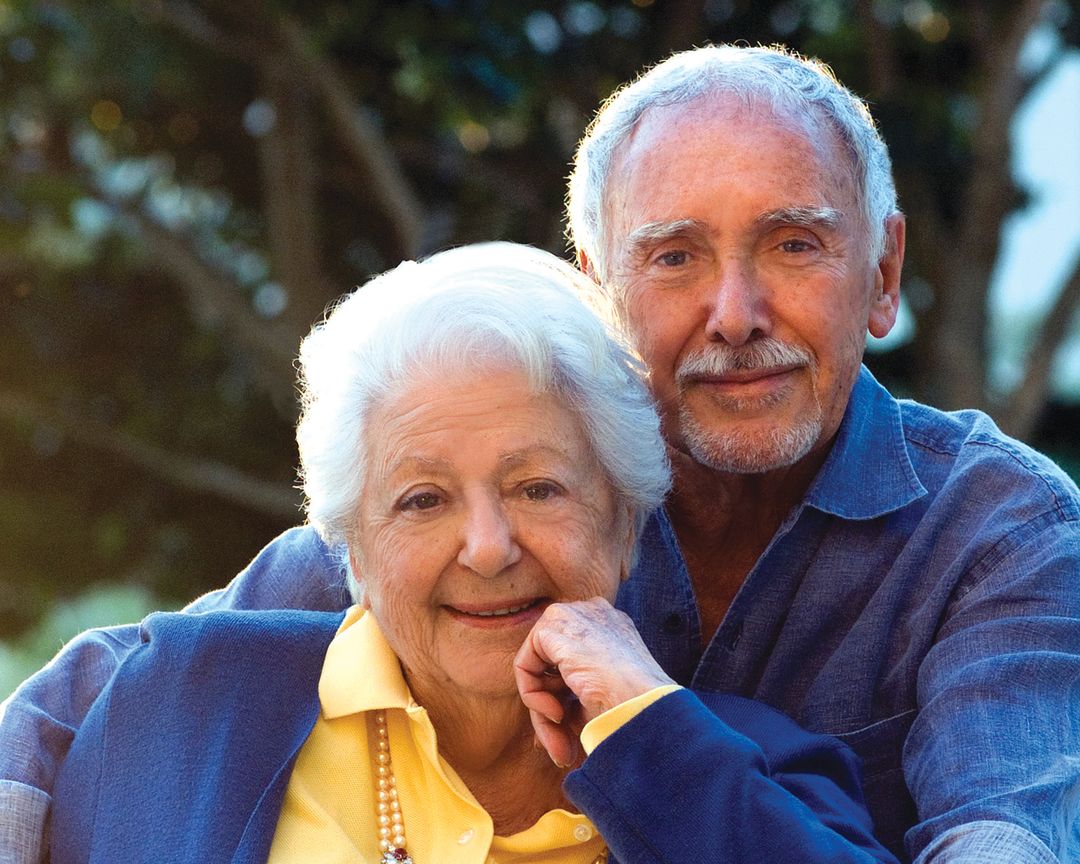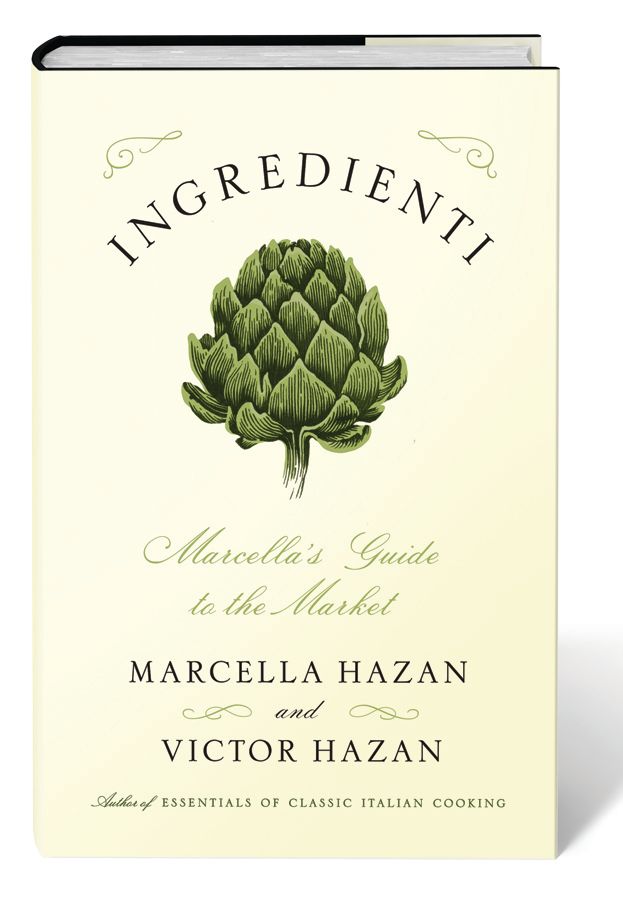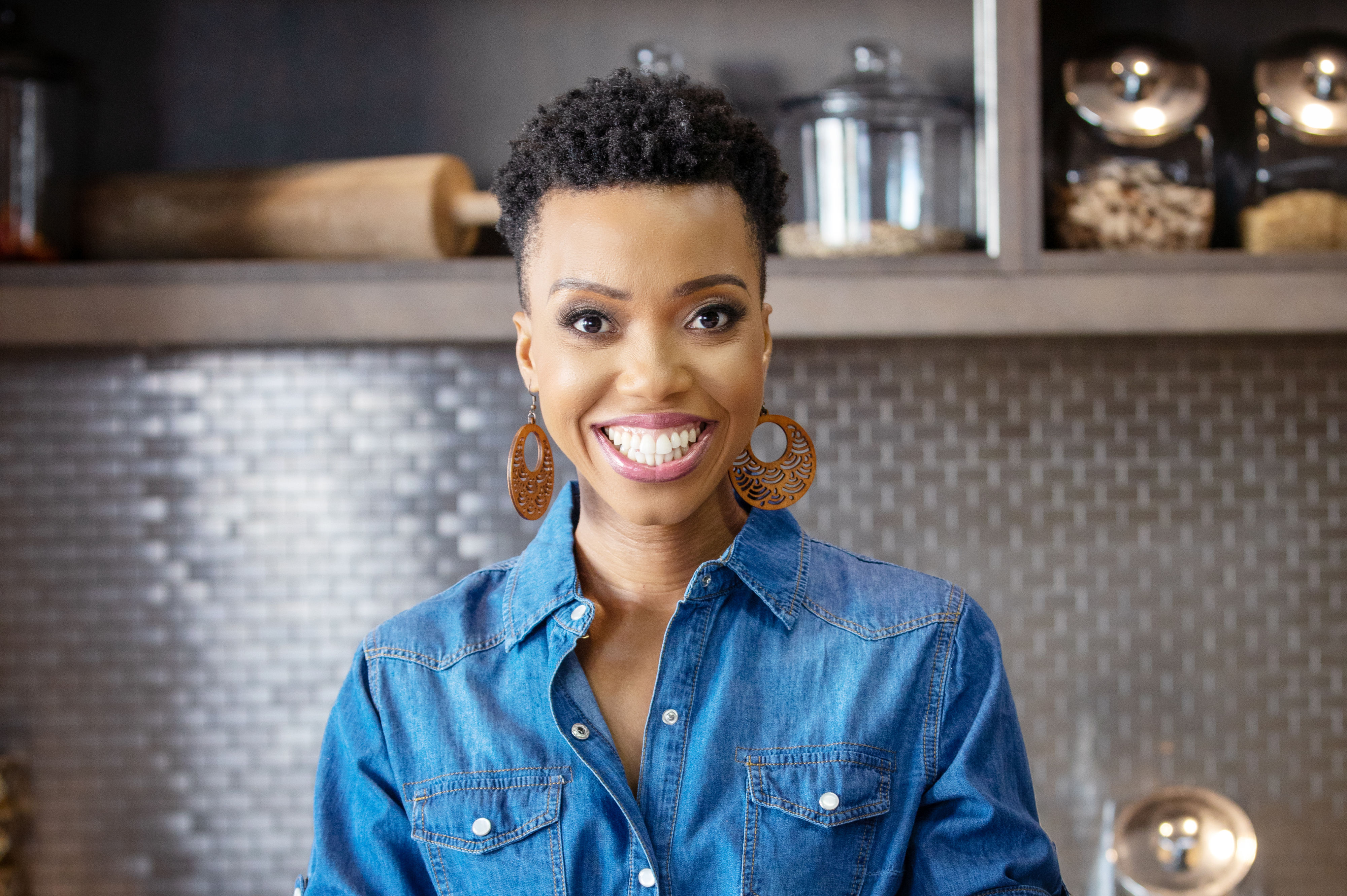Victor Hazan on His Late Wife Marcella's Last Cookbook

Marcella and Victor Hazan.
Image: Barbara Banks
When I spoke to Victor Hazan in the winter of 2014, he was feeling daunted by the prospect of finishing the book his wife Marcella had been working on before she died in 2013. Marcella, who is said to have introduced Americans to traditional Italian cooking through her best-selling cookbooks, had decided to make this book not about recipes but about the ingredients essential to Italian home cooks.
She wrote her books in her native Italian, and Victor, who says the two were in complete understanding on food—as on almost everything—translated her notes. Or perhaps he transfigured them; it’s hard to know. What’s clear is that his clean, elegant prose elevates the books far beyond the usual cookbook; in their own way, they’re literary masterpieces, and they illuminate a way of thinking about food—fresh, uncomplicated, honest and the nourishing center of family life—that appealed to modern Americans and made Marcella a global celebrity.
To honor Marcella—and, he wryly noted, “There’s the matter of the advance”—Victor told me back in 2014 that he felt bound to complete the book. But at 86 and still devastated by her death, he admitted wondering if he could rise to the task.
A few weeks ago, we sat on a loveseat in the living room of the couple’s Longboat Key apartment, with an advance copy of the book, Ingredienti: Marcella’s Guide to the Market, on the coffee table before us. It’s a small book, clear and precise, explaining how to shop for, store and use many of the ingredients in her recipes. Publishers Weekly calls it “essential for home cooks.”
Despite hearing aids on the blitz and shaky legs that he says “are no longer my legs—they are underpinnings,” Victor was a gracious host, offering me biscotti and sweet wine and entering into our conversation with wit and decision.
The book, he said, will be his last. Although writing “is what I was meant to do, I don’t like to do it anymore,” he said. For him, he explained, it’s a lengthy and often excruciating process, one of constant revision and paring away as he struggles to distill his thoughts and words to their absolute essence. “I keep stabbing at it,” he said. “I’m never satisfied.”
He’ll be 88 in a few weeks, he said, and he knows his days are limited. “My memory is fine and my head works well, but the time is growing near,” he said. In whatever time is left, “I want to go back to Venice as often as I can and play at decorating my apartment.” He pointed out a swath of pink-and-gold brocade fabric that he brought back from a recent trip to Venice and had draped across a chair.
I told him that on the drive to Longboat I had listened to an interview with novelist Don DeLillo, who said that even at 79, he finds it hard to imagine he won’t live forever. Victor shook his head. “Death is real to me because Marcella died in my arms right here,” he said. “Death happened in my very own arms. There is no reason it shouldn’t happen to me.”
But he doesn’t obsess about it, he said. Instead, he feels fortunate to have had such a long and active life, one rich in travel, experiences and most of all, a 60-year bond with the woman who was his partner and soul mate.
“Marcella was infinitely more profound than most people understand,” he said, one of the three great influences on modern food and cooking. He ticks them off. “Julia Child—she was all about the technique. Alice Waters—who is not even a very good cook—advanced a political agenda about sustainability and local food. And then Marcella. She had a genius for understanding taste. She had a perfect palate, but more importantly, she knew how something would taste even before she cooked it. She was not interested in complications or novelties or lots of spices and herbs. Most of her recipes have only three to five ingredients. They are irreducible—you can’t take anything away from them.”

Ingredienti: Marcella's Guide to the Market by Marcella and Victor Hazan
He looked over at the book and smiled as a thought struck him. “It’s a little bit like my writing,” he said. “More of my writing falls on the floor than remains. It’s a parallel with Marcella’s cooking, and that may be the fundamental something that drew us together—making things basic, getting rid of frou-frou.”
I asked him if he would share a recipe using one of the book’s ingredients, something that brings back memories of their life together. A few days later, he sent me a recipe for baked zucchini. “It was a typical summer’s dish for Marcella and me,” he wrote. “The flavors of summer’s vegetables, particularly those of an Italian summer, when we ate out on our Venetian terrace, were the deepest, sweetest of the year and gave us the most happiness at table.”
Baked Zucchini with Garlic, Tomatoes and Basil
Heat olive oil and peeled, chopped garlic in a medium small saucepan. Cook until the garlic becomes colored a pale gold, add a tablespoon or two of chopped parsley, stir, then add a bit less than a cup of cut-up imported San Marzano tomatoes. Cook at a steady simmer for 20 minutes or more, until the tomatoes thicken and the oil floats free.
Pour the full contents of the pan into a long oven-to-table baking dish. Spread into the dish about one and a half pounds of zucchini cut into thin rounds. Add salt and freshly ground black pepper. Bake in a 400-degree pre-heated oven until the juices shed by the zucchini are fully reduced and the zucchini feel tender when poked with a fork.
Let the dish rest a few minutes after removing it from the oven, top with several hand-torn fresh basil leaves, and serve.
Adapted from Essentials of Classic Italian Cooking by Marcella Hazan



